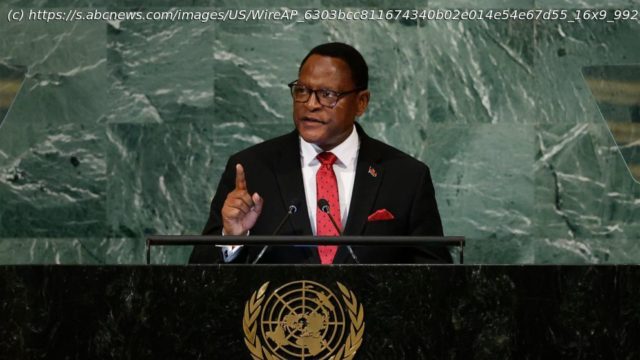Array
The United Nations was established on one simple notion above all others: Working together is better than going it alone. But while the term “multilateralism” might be trending at this year’s U.N. General Assembly, some leaders are calling out the heads of richer nations.
Whether it’s the global response to the COVID-19 pandemic or climate change, developing countries say it seems that richer nations are thinking of themselves first and not the world’s most vulnerable.
“The global economy is now a house on fire, yet we continue to use evacuation methods that rush some nations out to safety while leaving the rest of us behind to fend for ourselves in the burning building,” said Malawi’s president, Lazarus Chakwera. “But if we are truly one U.N. family, then leaving no one behind has to be practiced, not just preached.“
Tanzania’s Vice President Philip Isdor Mpango was even more blunt. He said that “unilateralism driven by greed is leading us — rich and poor, strong and weak — to a catastrophe.”
When the United Nations was established in 1945, world leaders hoped it would make sure that something like World War II never happened again. Over the years its mandate has tackled everything from nuclear proliferation to protecting refugees. But that high-minded notion of multilateralism has never wavered — even if the reality sometimes has.
Kiribati President Taneti Maamau Beretitenti reminded member states last week that the United Nations‘ founders wanted to not only prevent future wars but also “improve the standard of living for all.“
“Today, we take stock of the progress made towards those goals along with new commitments and to reflect and assess if we have truly lived up those values,” he said. Regionalism and solidarity, he said, “are at risk of being increasingly used to serve specific national interests” rather than for the common benefit.
“Broken humanity cannot be fixed by wonderful speeches, meetings, resolutions, nor international instruments, but by an interplay of greater compassion and solidarity,” he added.






